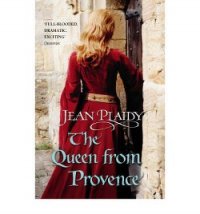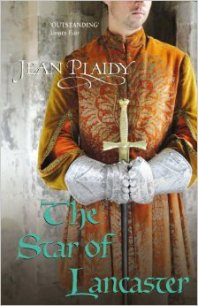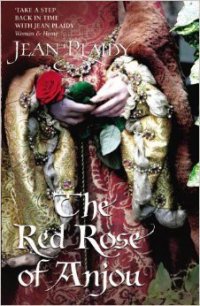The Revolt of the Eaglets - Plaidy Jean (бесплатные полные книги TXT) 📗
‘Then am I to remain as I am until he dies?’
‘Unless you take what you want.’
‘How so?’
‘Sons have done it before now!’
‘It would mean … war … war against my father! Is that what you mean?’
‘I do not mean that you should go straight from here and gather together an army. Though doubtless you could do that for he has his enemies … many of them. I mean that you should think of these things. He will not give you what is yours by right. Well then, you could think carefully – and be in no great hurry – of how you could best take it.’
‘You are right, my lady,’ cried Henry. ‘You have given me great hope. You and the King of France.’
‘The King of France would be a very powerful ally,’ said the Queen. ‘You should remember that.’
Henry and Eleanor had separate apartments at Chinon and during the sojourn there, they had had little time for private conversation but there were two matters on which the King wished to speak to her. One was straightforward; the formal betrothal of their son John to Alice, daughter of the Count of Maurienne, after which ceremony the little girl would be taken to England to be brought up there. The other he must approach in a subtle manner. That was the possibility of a divorce.
It was soon agreed that they should lose no time in bringing about the betrothal of John and arrangements should be put in hand so that this could take place in early February.
There remained that other matter.
The King approached it uneasily. ‘We have seen very little of each other of late, Eleanor,’ he began.
‘Do not tell me that is something you regret for I shall not believe you.’
‘I fancy that it is not a matter which has caused you great grief.’
‘I could not deny it with truth,’ she answered. ‘In fact I have considered myself well rid of you.’
‘Then I think we are of one mind. Our marriage can no longer be fruitful on account of your age.’
‘And perhaps of yours?’
‘Oh come, Eleanor, you know I am twelve years younger than you.’
‘And doubtless have sons and daughters preparing to be born all over your kingdom.’
‘There might be a few. But let us not waste time in senseless vituperation. You and I no longer have need of each other. Our marriage is at an end. We shall never again share a bed.’
‘A particular article of furniture on which you set great store.’
‘It is a necessary part of marriage. The procreation of children. What else is marriage for?’
‘And when one partner is beyond childbearing she is to be discarded. Is that what you are saying?’
‘Discarded! I used no such word. I want us to look at this sensibly.’
‘Then please say outright what you mean.’
‘It is this. There may be someone whom you would like to marry.’
‘And there is without doubt someone whom you would like to marry.’ Eleanor burst into loud laughter. ‘I know the lady well. Your fair Rosamund. That’s it, is it not? Her youth too will pass … is passing. And then you must find someone even younger, must you not? Rosamund. Foolish simpering Rosamund! She never raised her voice against you, did she? You liked that. Every woman – and man – must applaud you. Everywhere you go, you must be treated not as a king but as a god. And now you would marry Rosamund. Is that what you want? You would legitimise her bastards and mayhap try to set them up above my sons. That, my lord, is something I shall never agree to. So put marriage out of your mind. I shall never allow a divorce.’
He was faintly relieved that she had no inkling of his relationship with young Alice. Most certainly she had not, for if she had she would never have been able to keep it to herself. She would have burst out with it, and doubtless made trouble. What trouble she could make! The betrothed of Richard! The daughter of Louis! What had he done! No sooner had he extricated himself from the trouble over Thomas a Becket’s murder than he had seduced the not yet twelve-year-old daughter of the King of France.
But Eleanor was right. He did think that there was one set of rules for him and another for the rest of the world.
He was the King of England and controlled large areas of the Continent. He would do what he wished and none should dare condemn him.
But he had had to humiliate himself over Thomas and had seduced the daughter of the King of France.
He must be very careful for it was clear that Eleanor would never divorce him, which meant that he could never make little Alice his wife.
CASTLES FOR JOHN
In Montferrand in the Auvergne, Count Humbert of Maurienne had arrived with little Alice who was to be betrothed to Prince John, and there, the little six-year-old Prince, who had arrived from England, was formally betrothed to the Count’s daughter.
It was a charming ceremony. Henry felt quite tender towards his youngest son. This one’s mind had not been poisoned by his mother. It shall be different with John, Henry promised himself. He was delighted with the arrangement when he considered the fine dowry John’s bride was bringing him and all for a payment of five thousand marks … and this to be paid in instalments, the last of which would not be due until the marriage.
Henry was extending his empire far and wide.
There was one discordant note. After the ceremony there were to be celebrations in several towns, for Henry wished everyone to know what good this marriage would bring by giving his family control of more provinces. They were to spend a few days at Limoges and it was while they were there that Count Humbert began to ask himself what John was bringing to his daughter. It was true that young Alice would have the King’s son for a bridegroom and that King the most powerful in Europe, but John had three elder brothers who had already been promised the cream of his father’s possessions. His fears had been roused when he had heard the youthful bridegroom referred to as John Lackland.
Being a forthright man he decided to speak to the King about this matter.
‘You have not yet told me, my lord, what possessions your son John will bring to the marriage.’
Henry was silent for a few moments. He was thinking: The ceremony has been performed. He cannot withdraw now. But he could. How often had betrothals taken place and there had been no marriage!
He had no doubt that Humbert would listen respectfully to whatever he said and if he had nothing to offer John he would go back to his dominions and make some excuse why the marriage should not take place.
He thought quickly. ‘John,’ he said, ‘shall have the castles of Mirebeau, Loudon and Chinon.’
‘I am pleased to hear it,’ replied Humbert smiling and satisfied. ‘Those will be a goodly heritage, and with what my daughter brings to the marriage they will be very comfortably settled indeed.’
Henry congratulated himself that he had overcome a difficult situation with great ease.
He had in fact aroused a hornets’ nest.
The Court was talking about the portion that John was bringing to the marriage, and there was a certain amount of malice in the talk, for the three castles which Henry had designated to John had already been given to his son Henry as they were situated in Anjou which, with Normandy and England, was the inheritance of the King of England. Therefore the King had robbed Henry to pay John.
When Eleanor heard, she burst out laughing.
‘Now, my son, you understand your father’s ways. Promises to him are made to be broken. Next you will hear that he has bestowed the crown of England on someone of his fancy.’




